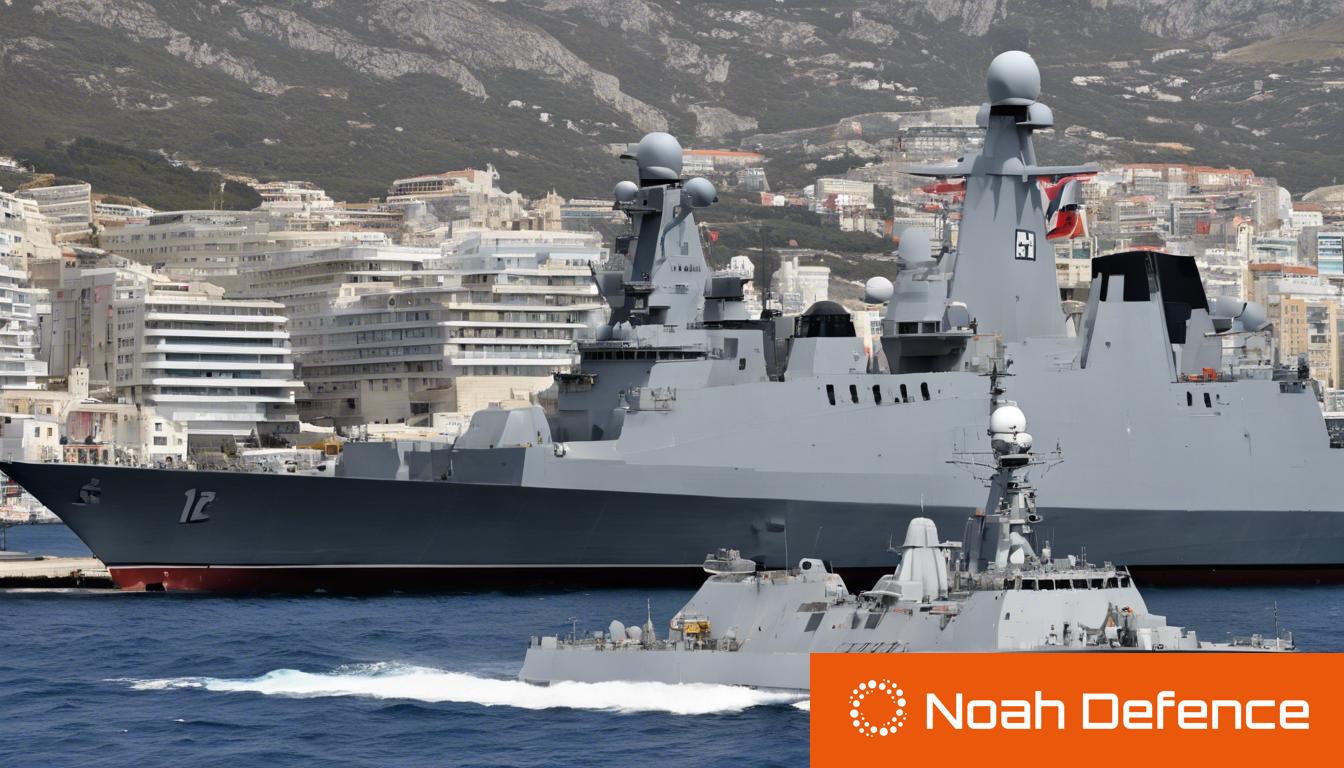The UK’s HMS Diamond replenishes missiles after engaging with Houthi drones, while Greece leads a new EU maritime security operation to protect commercial shipping in the Red Sea.
The British warship HMS Diamond, a Type 45 destroyer, has recently been observed in Gibraltar replenishing its missile stores, specifically loading 500kg Aster missiles for its Sea Viper air defence system. This operation follows the ship’s engagement with Houthi drones in the Red Sea, where it successfully intercepted seven Samad-variant kamikaze drones launched by Iran-backed rebels. The Ministry of Defence has emphasized the importance of the Royal Navy’s role in protecting global trade routes through the Red Sea. This engagement is signified by new kill markings on HMS Diamond, a tradition that dates back to World War I, representing the vessel’s successful defense missions.
In a related development, Greece has announced its leadership role in a new European Union maritime security operation named Aspides, aimed at enhancing the safety of commercial shipping in the Red Sea amidst threats posed by Houthi militant attacks from Yemen. A Greek frigate will participate in the operation, underlining Greece’s commitment to securing maritime trade pathways. Greek Defense Minister Nikos Dendias clarified that the mission is defensive, focusing on protecting European and Greek vessels against potential threats, rather than engaging in offensive actions against the Houthi militants. This initiative comes in response to the decreased activity at the Greek port of Piraeus, attributed to these security concerns.
Both events underscore the international community’s focus on maintaining security in critical maritime corridors. The involvement of naval forces from the UK and the lead role taken by Greece in the EU’s maritime operation highlight ongoing efforts to safeguard commercial shipping routes against the backdrop of regional tensions and threats to maritime security.













